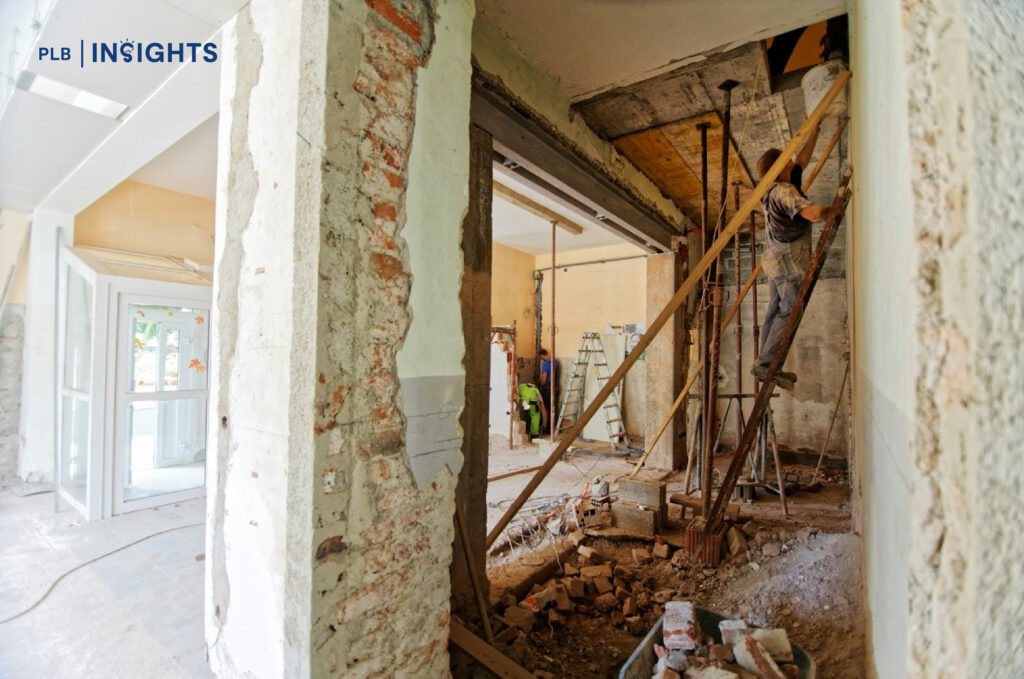
Singapore’s ever-evolving landscape presents unique opportunities for property buyers and investors. With shifting regulations and rapid developments, buyers must be aware of the intricacies of property transactions and investments. This is where the concept of due diligence comes into play. Thoroughly investigating a property before making the agreement official ensures home buyers are well-informed and prepared for the complexities of real estate transactions.
In this article, we are going to explore the critical role of practising due diligence on all fronts in Singapore’s property market and go over its significance in protecting your investments and ensuring a successful property transaction.
Understanding Due Diligence
Due diligence in property transactions refers to a comprehensive process that involves the careful examination and assessment of the various aspects of a property before finalising a purchase and transfer of ownership. It is an essential step in the property transaction for both buyers and investors, as they can gather all of the relevant information, from financial and legal to the physical aspects of the property.
The main aim of practising due diligence is to identify any potential risks or issues that are currently present or could arise in the future that can impact the value and usability of the property.

Key Stages of Property Transactions Where Due Diligence Is Essential
It is essential to incorporate due diligence at every key stage of the property transaction, from the pre-offer stage to the post-completion stage of the transaction. By doing so, buyers and investors can significantly reduce the risks that are associated with the properties they intend to invest in and enhance their potential for success in the long run.
During the pre-offer stage, it is important for buyers to practise due diligence by conducting thorough market research and assessing the property in terms of its value and condition. Once the offer is made, formal due diligence is carried out. This typically involves legal checks, inspections, and a careful review of the Sales and Purchase Agreement (S&PA).
Before finalising the contract, professionals working with the buyer perform due diligence by negotiating the agreement details and conducting a final legal review to protect the buyer’s interests. After the transaction is completed, due diligence is conducted through steps such as monitoring regulatory compliance and maintaining awareness of any changes in the market that could have an impact on the investment and its long-term success.

Legal Considerations
Legal due diligence involves verifying the property’s title, ownership history, and existing liens or encumbrances. Buyers should also examine land use regulations, zoning laws, and any ongoing legal disputes that could potentially affect the property.
Title Verification
Verifying the title of the property the buyer wishes to purchase is one of the primary components of legal due diligence. Title verification ensures that the seller is the rightful owner of the property, and it involves checking the Land Titles Registry through the Land Sales Authority (SLA) to verify the current owner’s name and any historical ownership changes and records.
Additionally, this helps buyers understand the title type of the property they intend to invest in, whether it is a leasehold or freehold property and what type of ownership they will be granted once the title is transferred. Along with this, legal due diligence allows buyers to identify any encumbrances on the property, such as liens, easements and mortgages. This is essential as these factors may affect the buyer’s ownership and rights.
Legal Compliance and Restrictions
Buyers also have to assess any legal restrictions that may apply to the property. These can include zoning regulations, land use regulations and any building approvals that are necessary. For instance, they must review Singapore’s zoning laws for the type of property that is being purchased. The Urban Redevelopment Authority (URA) has a list of zoning regulations that dictate how the land can be used, depending on whether it is for residential, commercial, or industrial use.
Moreover, it is essential to verify whether specific renovations and changes can be made to the property in compliance with the Building and Construction Authority (BCA) to ensure that future renovation plans can be undertaken and that the property adheres to safety and structural standards for its intended use.

Existing Agreements and Contracts
Another factor to pay attention to when it comes to conducting legal due diligence is the existing agreements the previous owner may have and how those can affect the property. If the property is tenanted, buyers should examine the tenancy agreements to understand the rights and obligations of both parties involved. This can include checking the terms of the lease, rental amounts, expiration dates, and possibly also getting to know the tenants. With this, buyers also have to take note of any covenants and restrictions present that could restrict or limit how they use the property. This includes limits imposed by the government or previous owners.
Buyers also must be aware of any ongoing legal disputes regarding the property at this stage. This may involve disputes with tenants, neighbouring properties, or regulatory bodies, as well as enforcement actions and compliance orders from government authorities that could impact the property’s status.

Working With Legal Professionals
Given the complexity of legal due diligence, it is highly important for buyers to engage a qualified professional lawyer. Lawyers can assist buyers with legal due diligence by conducting thorough searches and reviews of all necessary paperwork and regulations, interpreting legal documents and agreements, and offering advice on potential risks and required actions to protect the buyer’s interests.
Financial Due Diligence
This aspect focuses on the financial implications of the property transaction. Conducting financial due diligence for a property includes assessing the property’s market value, reviewing past financial statements, and understanding the costs associated with ownership and upkeep of the property.

Property Valuation
One of the first steps of conducting financial due diligence when purchasing a property is determining its market value. This can be done through a comparative market analysis, where recent sales of comparable properties within the same area can help buyers understand and establish a fair market price. With this, buyers should consider factors such as the amenities in the development, location, size and the property’s condition. Buyers can also consider getting a professional appraisal by hiring a licensed property appraiser to provide them with an unbiased valuation.
Review Financial Statements
For buyers considering investment properties, it is important to analyse historical financial statements that are associated with rental income and operating expenses, and to prepare cash flow projections. Analysing past rental income statements can enable buyers to assess the property’s potential to generate revenue. This can include details on occupancy rates, rental agreements and fluctuations in income over time if there are any. Moreover, gaining an understanding of the operating expenses like maintenance, property management fees, utilities and taxes will give buyers an understanding of the property’s overall profitability.
Creating a cash flow projection based on these factors and historical data, accounting for any potential changes in rental rates, market conditions and occupancy levels can further help buyers gauge future cash flow and the viability of their investment.
Understanding Risks and Financing Options
Another significant part of conducting financial due diligence is assessing financing options and risks associated with the property transaction. Buyers should research various mortgage options in Singapore, and compare interest rates, loan terms, and repayment plans to secure a deal that aligns best with their goals. Additionally, staying informed about market conditions and any potential economic fluctuations can help determine risk factors that could impact cash flow and property values.
Physical Due Diligence
Conducting physical due diligence on a property includes a thorough inspection of the property’s condition. This consists of taking a look at the structural integrity of a property, its compliance with building codes, and any environmental concerns that could potentially arise. A detailed physical assessment of the property can help buyers uncover issues that may not be immediately visible but could lead to significant costs down the line.
Property Inspections
A property inspection involves assessing and evaluating the property’s structural integrity – the foundation, roof, walls, and construction quality. This enables buyers to identify any potential defects or maintenance requirements. Additionally, inspecting key systems such as electrical, plumbing, heating, ventilation, and air conditioning ensures they are functioning correctly and comply with safety standards. Finally, going over any potential environmental and health concerns is crucial. This includes assessing the property for environmental issues such as mould and pests.
Compliance With Building Regulations
This factor in the physical due diligence of the property involves ensuring that the property adheres to the BCA’s regulations that govern the safety, accessibility and environmental sustainability. Moreover, doing so will ensure that the property is safe for occupancy and use.
Neighbourhood and Surrounding Environment
Beyond a physical inspection of the property, it is also important to evaluate the property’s location in relation to essential services and amenities such as public transport, schools, healthcare facilities and shopping malls. Accessibility to these amenities can have a significant impact on the desirability and value of the property.

Closing Thoughts
Practising due diligence serves as the cornerstone of a successful property transaction in Singapore. As buyers and investors face numerous challenges, from legal complications to fluctuating market conditions, a comprehensive due diligence process can provide them with the foundation for well-grounded decision-making. Ultimately, prioritising this process is essential for anyone to safeguard their investment, find peace of mind, and find a key strategy for the long-term profitability of their property.
Get In Touch With Us
Are you currently in the process of purchasing your first home? Feel free to reach out to our team of seasoned consultants here. Whether you are a first-time homebuyer or an experienced investor, we are more than happy to provide you with all of the assistance and guidance you need on your property journey.
Until then, see you soon.







